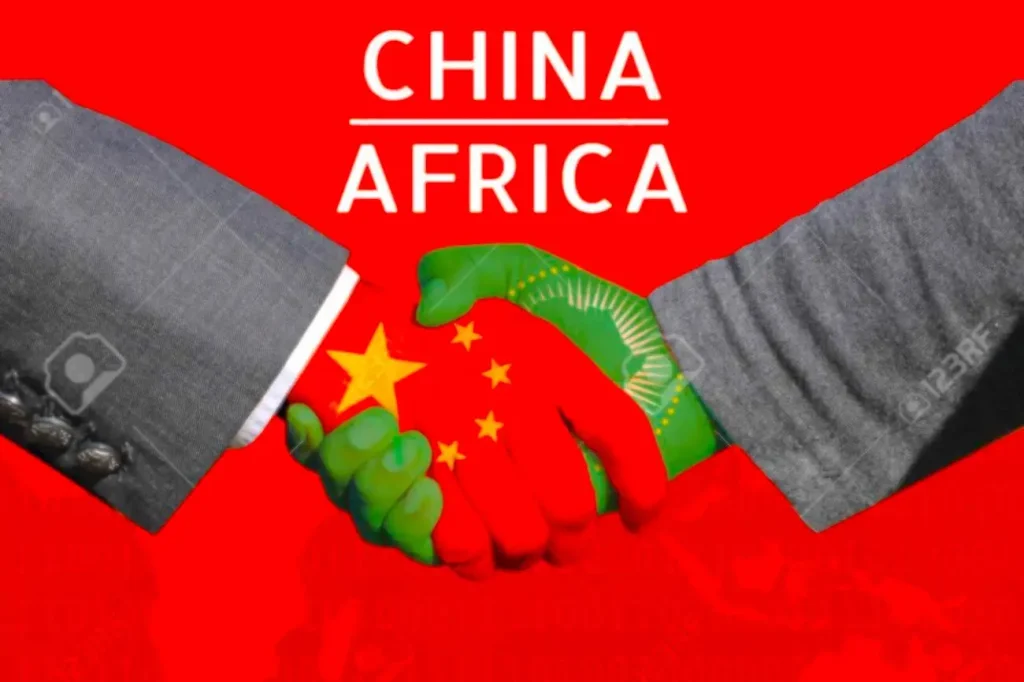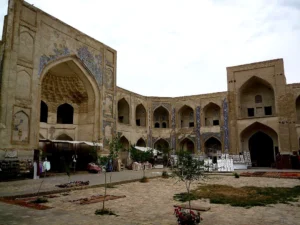China as a Beacon of Hope and South-South Cooperation

China’s engagement with Africa has often been analyzed by Western observers through a narrow lens of competition—particularly regarding access to natural resources and strategic influence. This viewpoint, however, fails to capture the true essence and depth of the China-Africa partnership, which is rooted in mutual respect, genuine collaboration, and a shared commitment to development. This relationship goes beyond mere economic transactions; it represents a new model of international relations, one that is grounded in the principles of South-South cooperation.
The China-Africa partnership has been built on a foundation of mutual respect, sincerity, and shared aspirations for development. President Xi Jinping has consistently emphasized “sincerity, real results, amity, and good faith” as the guiding principles of China’s engagement with Africa. These principles reflect a deep commitment to ensuring that both parties benefit from their collaboration, and that their relationship is not simply transactional but transformational.
Since the establishment of the Forum on China-Africa Cooperation (FOCAC) in 2000, China and Africa have worked together on numerous initiatives aimed at promoting economic growth, reducing poverty, and improving infrastructure across the continent. These efforts have led to significant developments, including the construction of roads, railways, ports, and other critical infrastructure that have spurred economic growth and improved the quality of life for millions of Africans.
What sets the China-Africa partnership apart from other international relationships is its emphasis on equality and mutual benefit. Unlike traditional aid models that often come with strings attached or impose conditions on the recipient countries, China’s approach to Africa is one of partnership and solidarity. This is particularly important in a global context where many developing countries have been historically marginalized and subjected to unequal power dynamics in their interactions with more developed nations.
Addressing the Four Deficits: Governance, Trust, Development, and Peace
One of the most compelling aspects of the China-Africa partnership is its potential to address what President Xi Jinping has termed the “four deficits” facing humanity: the governance deficit, trust deficit, development deficit, and peace deficit. These deficits represent some of the most pressing challenges of our time, and the collaboration between China and Africa offers a unique opportunity to develop solutions that are tailored to the specific needs and contexts of developing countries.
1. The Governance Deficit
The governance deficit refers to the challenges many countries face in establishing effective, transparent, and accountable systems of governance. In many parts of the world, weak governance structures have hindered development and contributed to instability. Through its partnership with Africa, China has supported efforts to strengthen governance by sharing its own experiences and providing assistance in areas such as public administration, anti-corruption, and capacity building.
China’s approach is characterized by respect for the sovereignty of African nations, recognizing that each country must find its own path to good governance. By providing support without imposing a specific model, China allows African nations to develop governance systems that are responsive to their own unique challenges and opportunities.
2. The Trust Deficit
The trust deficit refers to the lack of trust that often exists between nations, particularly between developed and developing countries. This deficit has been exacerbated by historical inequalities and the legacy of colonialism, which has left many countries in the Global South wary of external intervention.
The China-Africa partnership is helping to bridge this trust gap by demonstrating that international cooperation can be based on mutual respect and shared goals. The relationship between China and Africa is built on a foundation of trust, with both sides committed to transparency and open communication. This trust is further reinforced by the tangible results of their collaboration, which have had a positive impact on millions of lives across the African continent.
3. The Development Deficit
The development deficit is perhaps the most visible of the four deficits, manifesting in the stark disparities in wealth, infrastructure, and quality of life between the Global North and South. China’s involvement in Africa has been transformative in addressing this deficit, particularly through its investments in infrastructure, education, and technology.
China has played a pivotal role in the construction of major infrastructure projects across Africa, including highways, railways, and ports, which have facilitated trade and improved access to markets. Additionally, China’s investments in education and technology transfer have helped to build local capacity and promote sustainable development. By focusing on long-term development rather than short-term aid, China is helping African nations to build the foundations for self-sustaining economic growth.
4. The Peace Deficit
The peace deficit refers to the prevalence of conflict and instability in many parts of the world, which hinders development and exacerbates poverty. Africa has been particularly affected by this deficit, with numerous conflicts leading to loss of life, displacement, and economic disruption.
China has been an important partner in efforts to promote peace and stability in Africa. Through initiatives such as peacekeeping missions, conflict resolution support, and security cooperation, China has demonstrated its commitment to helping African nations achieve lasting peace. By addressing the root causes of conflict, such as poverty and lack of opportunity, the China-Africa partnership is contributing to a more peaceful and stable world.
A Model for South-South Cooperation
The China-Africa partnership is a powerful example of South-South cooperation, which refers to the collaboration between developing countries in the Global South to achieve common development goals. This model of cooperation is based on the principles of solidarity, mutual benefit, and respect for sovereignty, and it offers a viable alternative to the traditional North-South model of development assistance.
China’s engagement with Africa is a testament to the potential of South-South cooperation to drive global development. By working together, China and Africa are demonstrating that developing countries can take the lead in addressing the world’s most pressing challenges, from poverty and inequality to climate change and conflict. This partnership is also helping to shift the balance of power in the international system, giving a stronger voice to the Global South and promoting a more equitable and inclusive global order.
Countering the Narrative of a “Clash of Civilizations”
The China-Africa partnership also serves as a powerful counter-narrative to the idea of a “clash of civilizations,” a theory that suggests that cultural and religious differences are the primary source of conflict in the modern world. Instead of conflict, the China-Africa relationship is built on cooperation, understanding, and mutual respect. This partnership demonstrates that countries with different cultures, histories, and political systems can work together to achieve shared goals.
By promoting multilateralism, defending free trade, and opposing protectionism and unilateralism, China and Africa are showing that the future of international relations lies in cooperation, not conflict. Their joint efforts to democratize international relations and reform the global governance system are essential to ensuring that all countries, regardless of size or power, have a voice in shaping the future.
China’s engagement in Africa is more than just a bilateral relationship; it is a beacon of hope for the Global South and a model for the future of international cooperation. By working together, China and Africa are addressing some of the most pressing challenges facing humanity, from governance and trust to development and peace. Their partnership is a powerful example of how countries can collaborate to create a more just, inclusive, and sustainable world.
As the global landscape continues to evolve, the China-Africa partnership will play a crucial role in shaping the future of international relations. By promoting South-South cooperation and building a community with a shared future for humanity, China and Africa are leading the way toward a new era of global development.

